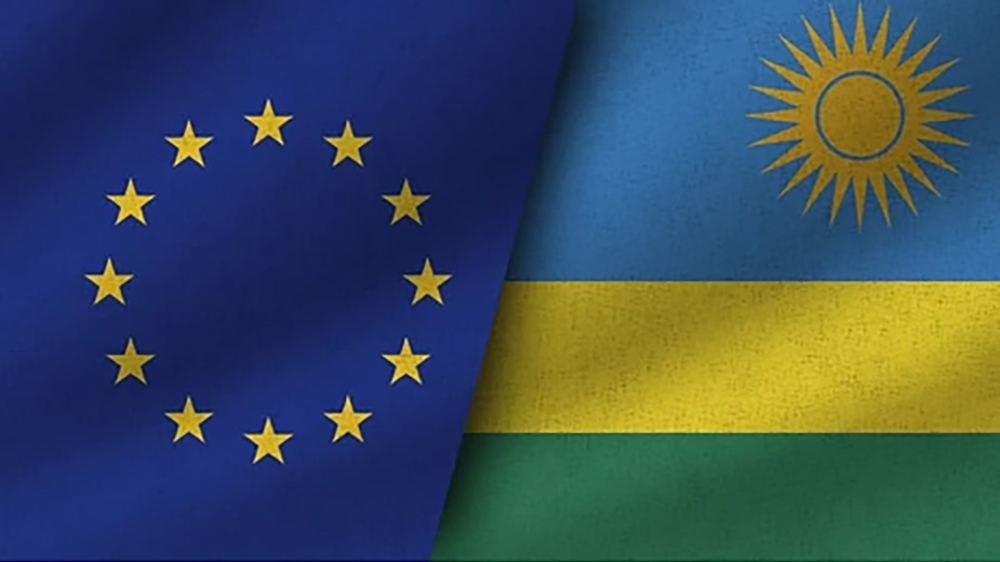
Rwandan civil society says Western sanctions will “exacerbate conflict” in the Democratic Republic of the Congo
The Rwanda Civil Society Platform (RCSP), the highest body representing civil society organizations in Rwanda, warns that the sanctions imposed by Western nations on Rwanda and the AFC/M23 insurrection could jeopardize the ongoing regional mediation efforts intended to restore peace in eastern DR Congo.
In particular, calls for European nations to impose sanctions on Rwanda have been led by Brussels, with which Kigali cut diplomatic ties on Monday, over the latter’s alleged support for AFC/M23 rebels, a Congolese political-military alliance that is fighting for governance that upholds fundamental human rights, protects all Congolese citizens, and tackles the underlying causes of conflict. Among other evils that are pervasive in DR Congo, the leaders of the insurrection have pledged to eradicate corruption, nepotism, tribalism, and genocidal mentality.
To the annoyance of some Western nations and organizations, the rebels have rapidly expanded their territory over the last two months, including seizing important towns after defeating a large Congolese army coalition that includes the FDLR, a terrorist militia backed by Belgium and the Democratic Republic of the Congo, and was founded by the masterminds of the 1994 Genocide against the Tutsi.
The ongoing conflict began in 2021 and was initially fought against M23 rebels by the Congolese army alliance, which included hundreds of FDLR militants, over 10,000 Burundian troops, 1,600 European mercenaries, South Africa-led SADC forces, and UN peacekeepers. Kigali has denied the Congolese government’s allegation that Rwanda backs the rebels. The majority of the M23 rebels were originally members of the Kinyarwanda-speaking Congolese population, which has been persecuted by its own government for decades, despite having Rwandese ancestry or culture.
The former president of the Congolese national election commission (CENI), Corneille Nangaa, is now the leader of the Alliance Fleuve Congo (AFC), a broader rebel coalition that was formed in December 2023 and includes the M23 rebels.
On January 27, the rebels took control of Goma, the capital of North Kivu Province, and restored order after intense combat sparked by persistent violations of an earlier ceasefire by the Congolese army coalition. Following their takeover of Goma, hundreds of government soldiers surrendered and joined the rebels. The rebels made another move as the security situation in South Kivu worsened due to reports of atrocities, bloodshed, and looting spread by the Congolese army coalition. On February 15, they moved south to seize the regional capital, Bukavu, after first seizing the vital Kavumu airport.
Citing ties to the Congolese uprising, the EU imposed sanctions on three Rwandan military officers on Monday.
The CEO of the Rwanda Mines, Petroleum and Gas Board was also subject to the measures, which include asset freezing. The agency was accused by the EU of taking advantage of the violence in the Democratic Republic of the Congo to take lucrative minerals from the east of the badly run country.
“Sanctions may make mediation more difficult.”
AFC/M23 rebels said Monday that they “deeply regret that certain international institutions are purposefully working to sabotage peace efforts” in the Democratic Republic of the Congo and prevent the long-awaited negotiations.
“Direct communication is seriously compromised and any progress is prevented by the successive sanctions imposed on our members, including those adopted on the eve of the Luanda discussions.”
Thus, on Tuesday, March 18, just hours before the peace talks could begin in the capital of Angola, the rebels pulled out of the peace negotiations with the Congolese government.
“Significant and authoritative research indicates that sanctions can complicate mediation efforts by fostering exclusion, emboldening non-sanctioned parties, closing mediation space, and undermining mediator’s impartiality,” the RCSP stated in a joint statement.
Sanctions don’t do anything to end deadlocks, encourage collaboration, guarantee widespread involvement in negotiations, or make it easier for discussions to start. By unintentionally bolstering hard-line players, sanctions can worsen conflict by increasing opposition to a negotiated settlement and ultimately extending it.
In addition to generally straining international cooperation and undermining the concept of collective action, which can be essential for effective conflict resolution, the RCSP contended that sanctions can disproportionately harm civilian populations, causing economic hardship and possibly escalating instability and resentment.
In light of the interconnectedness of humanitarian, peace, and development, which necessitates a comprehensive approach to address the complexity of the regional conflict challenges, the civil society group urged all relevant world leaders to review and reconsider the sanctions system.
In addition, the RCSP stated that it supports the joint EAC-SADC efforts that began in February and urged regional leaders and designated facilitators to set up a phased process to bring about peace by securing a respected and long-lasting cease-fire between the warring parties and mediating open, honest, and thorough talks that definitively address the conflict’s underlying causes.
One of the main decisions of the joint East African Community and Southern African Development Community leaders summit, which took place in Dar es Salaam, Tanzania, on February 8, was the peaceful settlement of the war in eastern Democratic Republic of the Congo through the Luanda and Nairobi peace processes.
The leaders’ demand for the application of a previously authorized harmonized plan for the neutralization of FDLR was another crucial component. The current conflict in the region is a result of the genocidal militia’s existential threat to Rwanda, the entire region, and particularly the Congolese Tutsi villages it has been persecuting in eastern Democratic Republic of the Congo.
A simple cease-fire without addressing the legitimate concerns of all sides would be delaying issues that could resurface later with considerably more disastrous repercussions, the RCSP statement continued.
It suggested that the mediation team try their best to address the conflict’s underlying causes rather than just its rhetoric.
All Categories
Recent Posts
Tags
+13162306000
zoneyetu@yahoo.com



